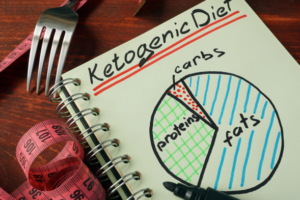Contributed by: James Marin, RD, EN, Married to Health.com
If you are reading this then chances are you live in a first world country, and that means that despite what your family history may be, you are at risk for Diabetes. Diabetes and variations of Diabetes affect approximately1 in 2 people in the US1. Yes, roughly 1 in 2 people have some form of insulin resistance or insulin signaling issues resulting in abnormal blood glucose levels. If this statistic doesn’t alarm you, it should be pointed out that about 30-40 years ago the incidence of Diabetes and insulin issues were less than 3%2!
What happened in that period of time? How did we get here? Well, when we take a closer look at the current treatments for Diabetes we can see a majority of the confusion. Let’s look at the common steps people take when they have Diabetes and give a bit of a clearer picture.

- Take Medication
Yes, in many cases this is necessary and helpful, but medication for Diabetes is not meant to be used for a lifetime. Go back to what I said about insulin signaling. Without getting too technical you have to understand that your body isn’t having issues with carbohydrates per say, it is having issues with insulin production and/or insulin signaling. In general, medications will then force the body to take in the blood sugar/glucose, but it doesn’t address the problem of why your body was having an issue in the first place3. This high dependence on insulin without proper lifestyle changes is now creating a phenomenon where Type 1 Diabetics can now also be a Type 2 Diabetic, because if the Type 1 Diabetic takes their insulin, but doesn’t make healthy lifestyle changes, their cells can then start to not notice the insulin/medication and they now become Type 2 Diabetic4 (mind-blown).

- Low Carb Diet
Every other patient I see has been on some variation of a low-carb diet. And that same patient will cheerfully tell me they lost 20, 30, or 40 pounds, but then will later admit they gained it back with interest. This is not surprising because carbohydrates are not to blame. Let’s get something very clear- sugar and carbohydrates aren’t bad for you; refined sugar and refined carbohydrates are bad for you 5,6. However, refined grains and sugars aren’t the only things that increase your risk or complications associated with Diabetes. Animal fats can also increase your adipose tissue and disrupt intercellular signals contributing to insulin resistance aka Diabetes. We will have to dive down this rabbit hole in more depth another time. J
These half-story treatments coupled with the ever growing list of processed foods are a good part of why we are seeing a rise in metabolic diseases like Diabetes. So, you are at risk or maybe you have Diabetes in some form, what do you do?
There is hope. Even though there are tons of unhealthy products on the grocery shelves there are still great foods to eat. With our patients we always recommend a majority of your diet being whole, unprocessed plant foods, especially if you are Diabetic! With that said there are products like Tolerant Simply Legumes that use whole food ingredients to make delicious and simple pastas so you can still enjoy your favorite dishes without worrying about consuming overly refined foods that could increase your risk of disease. What makes the Simply Legume pastas special is they use a minimally processed whole plant food ingredient to make the pasta! No added sugar, no refined grains, and therefore no huge insulin spikes, no drastic oxidative damage, and a decreased risk of Diabetes 7,8. Yes, the more whole food products you consume the less likely you are to:
-Get Diabetes
-Take more or any medication
-Have Diabetes complications
-Spike blood sugar
-Develop Type 2 Diabetes on top of your Type 1 Diabetes
Hopefully you get the picture. Yes you are at risk for Diabetes, yes there are tons of factors that can cause Diabetes (including many of the “treatments”), BUT you have the power to prevent, reverse, or better manage your Diabetes! If you increase your whole foods (leafy greens, vegetables, legumes, fruit, nuts, seeds, and whole grains) you will start to see a shift in your body.
**Dahlia and James Marin are a husband and wife team of Holistic, Plant-Based Registered Dietitians who offer their patients a way to reverse and overcome chronic diseases. They have both been Whole Food Plant-Based (WFPB) for over 7 years and have had a fully plant-based pregnancy leading to a now 3 yo plant-based daughter who is thriving. Connect and find out more at www.marriedtohealth.com.**
References
- JAMA. 2015;314(10):1021-1029. doi:10.1001/jama.2015.10029
- CDC. April 2017. “Long-term Trends in Diabetes”. Cdc.gov/diabetes/data (March 2018)
- JAMA Intern Med. 2014;174(8):1227-1234. doi:10.1001/jamainternmed.2014.2894
- Diabetes Care 2007 Mar; 30(3): 707-712. https://doi.org/10.2337/dc06-1982
- https://doi.org/10.1371/journal.pmed.1002279
- J Agric Food Chem.2009 Sep 9;57(17):8010-7. doi: 10.1021/jf901559a.
- Biomed Res Int. 2017; 2017: 8450618. Published online 2017 Nov 2. doi: 10.1155/2017/8450618
- Am J Clin Nutr. 2014 Jul; 100(1): 278–288. Published online 2014 Jun 4. doi: 10.3945/ajcn.113.076901